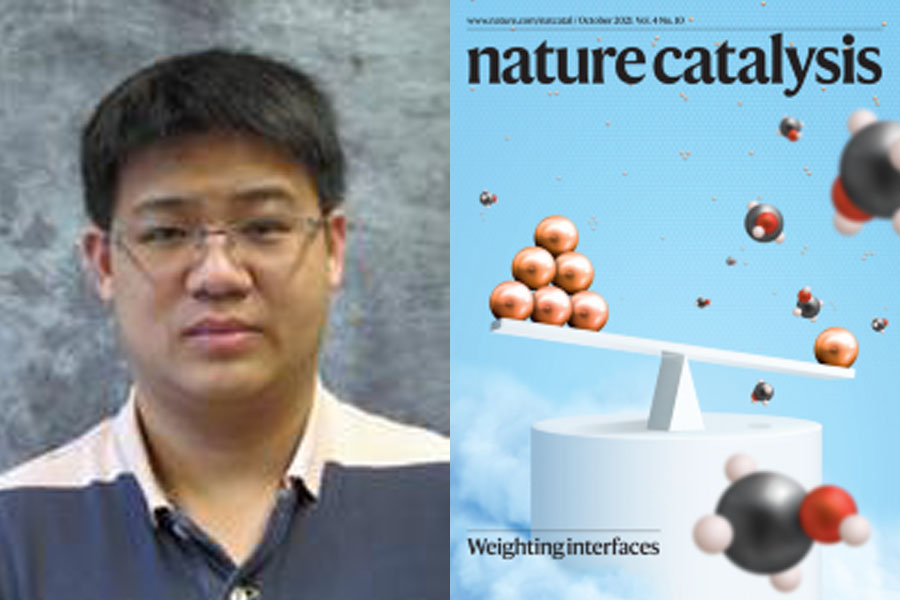ChE research invents revolutionary catalysts for methane activation
Discovery could advance natural gas/shale gas utilization, reduce methane emissions, and ease climate change

A research team of scientists, including Davidson School of Chemical Engineering Senior Research Engineer Yang Xiao and Iowa State University Professor Yue Wu, Postdoctoral Research Associate Zhe Li, in collaboration with Jeffrey Miller and Jeffrey Greeley (professors of chemical engineering), and Xiulin Ruan (professor of mechanical engineering), has invented revolutionary atomically-thin platinum nanolayers catalysts on two-dimensional metal carbides for converting methane to ethylene and ethane products.
Methane is the main component of natural gas and shale gas; it is the second-largest driver of global warming. Catalytic transformation of methane to value-added chemicals plays an important role in shale gas utilization and methane emission control. Oxidative coupling of methane (OCM) is a promising approach to convert methane to important C2 species (ethane/ethylene) which are precursors for a variety of valuable products like plastics and resins. However, low selectivity toward C2 species in OCM has been a longstanding challenge since the 1980s owing to the unavoidable over-oxidation.
To solve this problem, the research team designed a series of atomically-thin platinum nanolayers catalysts on two-dimensional metal carbides (Pt/MXene). These catalysts exhibit about 7% methane conversion at ~95% selectivity towards ethane/ethylene in a continuously operated fixed-bed reactor. Remarkably, these novel catalysts run for 72 hours of continuous operation without deactivation, indicating a promising start toward technologies suitable for exploitation on the industrial scale. The exceptionally high dispersion, i.e., almost 100%, of platinum atoms over the catalyst support utilizes each single Pt atom, making the catalyst more economical for industrial applications.
Their study, “Direct methane activation by atomically thin platinum nanolayers on two-dimensional metal carbides”, is published in a recent issue of Nature Catalysis. (Nature Catalysis, volume 4, pages 882–891 (2021), DOI: 10.1038/s41929-021-00686-y)
At Purdue, this study is primarily supported by the Davidson School of Chemical Engineering via the Varma Reaction Engineering Fund. Xiao is very grateful for the support from Sangtae Kim, Distinguished Professor and Jay and Cynthia Ihlenfeld Head of Chemical Engineering. Xiao completed the project in honor of Arvind Varma, the former R. Games Slayter Distinguished Professor of Chemical Engineering at Purdue University and 10th Head of the School, and will join the faculty of Louisiana Tech University in the Spring of 2022.
This study is also supported in part by the National Science Foundation under Cooperative Agreement no. EEC-1647722 (CISTAR - Center for Innovative and Strategic Transformation of Alkane Resources) and NSF-CBET Award 1804712. A U.S. Provisional Patent Application 62/937,055 has been filed for this research.
